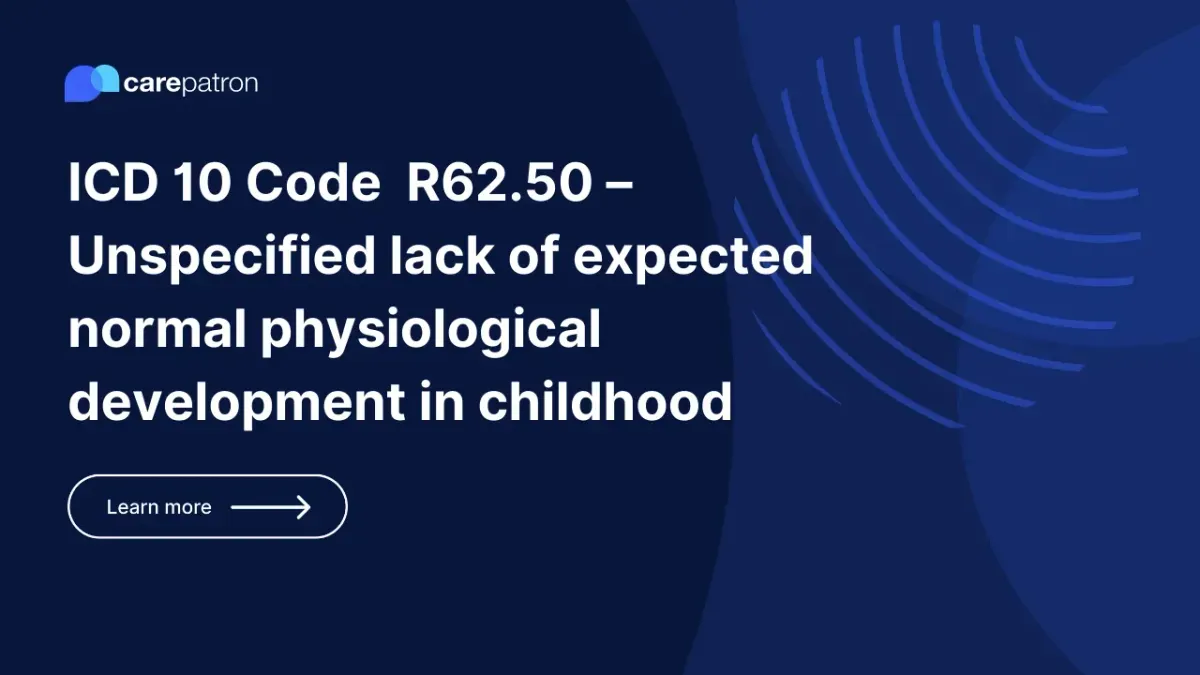
R62.50 – Unspecified lack of expected normal physiological development in childhood
Learn more ICD-10-CM code R62.50 code, including relevant clinical information, whether it’s billable, FAQs, and similar codes.
Use Code
Commonly asked questions
Yes, this ICD-10 code is billable.
You use it when your patient is confirmed to have an unspecified lack of expected normal physiological development in childhood, meaning you know they have a physiological development issue or disorder, but you don’t know what it is specifically as of now.
That depends on what the specific problem is. If a specific problem is detected, a more specific ICD-10 code should be used. Treatment might involve nutrition, physical therapy, medication, occupational therapy, speech therapy, etc.
EHR and practice management software
Get started for free
*No credit card required
Free
$0/usd
Unlimited clients
Telehealth
1GB of storage
Client portal text
Automated billing and online payments
